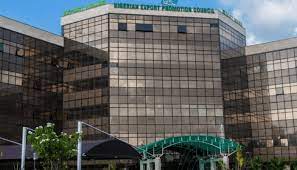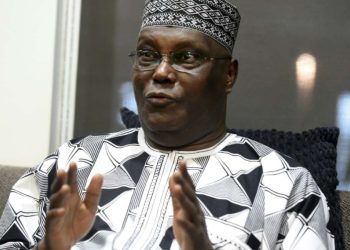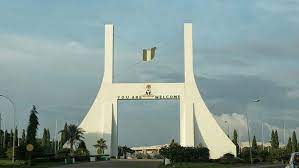The Nigerian Export Promotion Council (NEPC) on Monday in Abuja reiterated the need to promote non-oil exports for Nigeria to meet its national and global economic demands.
Dr Ezra Yakusak, Executive Director/CEO of NEPC said this at a five-day export promotion capacity building programme.
The programme designed to train stakeholders in the export sector was organised by Fidelity Bank PLC in partnership with the Lagos Business School (LBS) and NEPC.
Represented by Mr Babatunde Falake, Director, International Export Office, NEPC, Yakusak said that emphasis must shift from crude oil export and be laid on export of Nigeria’s vast resources.
“Recent developments in our national economy and indeed the global economy has made it clear to us that more emphasis should now be laid on export of our vast resources if we must survive as a nation.
“It is unfortunate that Nigeria, having been blessed with resources in agriculture, solid minerals, entertainment industry, creative arts, Information and Communication Technology, fashion and of course manufacturing has continued to rely on export of crude oil as the major source of foreign exchange,’’ Yakusak said.
He said that the council’s zero oil plan developed in response to the recession in 2016 following the crash in crude oil prices, was targeted to prepare Nigeria for a world with less emphasis on export of crude oil.
According to Yakusak, it is a strategy for boosting foreign exchange through the non-oil export policies for 22 major products that could generate up to $30 billion foreign exchange within a period of five years.
“The 22 products include cotton, petrochemicals, fertilizers, palm oil, rubber, cement, tomatoes, banana. Others are oranges, cashew, cassava, sesame, spices, ginger, shea butter and cowpea,’’ he said.
He expressed NEPC’s commitment to continue to support efforts in sensitising Nigerians to embrace non-oil export as a viable option for economic growth and survival.
“The Council recently launched the`Export 4 Survival’ campaign which is aimed at sensitising Nigerians from all walks of life to embrace non-oil export as a viable option for our economic growth and survival.
“The campaign is already making impact as the council with its activities is now more on the limelight nationwide.
“It is expected that this will definitely result to increased revenue from non-oil sector in the near future.
“What we are doing today through partnership with Fidelity Bank and Lagos Business School is highly commendable.
“A look at the various topics for discussion clearly demonstrates our readiness to equip the participants with the required knowledge and skills for successful export business and specially to curtail the rejection of non-oil exports from Nigeria,’’ Yakusak said.
One of the facilitators, Dr Frank Ojadi, Faculty member, Lagos Business School, said that building the capacity of Nigerians and providing the needed infrastructure were critical in attracting people into exports.
“One of the challenges of export trade lies more in equipping people, building their capacity in what exporting means and therefore you need to learn the trade, the processes and the procedures.
“But of course some of the things required for you to export also lies with infrastructural capabilities of the country and as long as that continues to be a problem, it will impede trade.
“Only recently, I was looking at coastal shipping which ideally should encourage and enhance the AfCFTA trade that has just been signed but of course high cost of port shipping is contributing to our not being very competitive enough to export products.
“So, I think very seriously that coastal shipping would help particularly with respect to AfCFTA and then of course infrastructural difficulties with shipping would also affect trade going to different parts of the world,’’ Ojadi said.
Mr Emmanuel Nwalor, Team Lead, Export and Agriculture, Fidelity Bank, said that there was a possibility of failure if an exporter lacked the capacity and knowledge to export.
“ Recent developments in the global market occasioned by COVID-19 and volatilities in the oil sector have heightened the need for Nigeria to diversify its economy away from oil.
“To boost non-oil exports and build sustainable export capabilities for Nigerian businesses, Fidelity Bank Plc, Lagos Business School and Nigeria Export Promotion Council initiated the Export Promotion Capacity Building Programme.
“This five-day programme is designed to equip participants with the knowledge, tools and skills required to develop their export business.
“This is in line with global standards, taking advantage of the AFCFTA treaty as well as the new Central Bank of Nigeria’s policy on foreign exchange which emphasises value addition,’’ Nwalor said.
The programme provided a platform for gaining practical insights on non-oil exports and accessing opportunities presented by the African Continental Free Trade Area (AfCFTA) agreement and the RT200 FX Programme.
Entrepreneurs, prospective exporters and financiers of exports are participating in the programme.
Others are export sector regulators, policy makers, Micro Small and Medium Entrepreneurs, State and Federal Government agencies and logistics service providers.
They were taken through topics including overview of Nigeria’s export activities, assessment of the potential to become a successful exporter and how to list products on major international e-commerce platforms.













